“YOUR COMPUTER MAY HAVE ADWARE/ SPYWARE VIRUS” is a type of adware which is able to take over your web browser and deliver fake security alerts by Microsoft Security Essentials to collect illegal money by scaring users to call the given number 1-201-591-3780 and cheat them to pay for a clean computer. As a matter of fact, the message is sent from http://microscustomersupport.com/clientarea/Index.php website to fool users.
“YOUR COMPUTER MAY HAVE ADWARE/ SPYWARE VIRUS” usually slips into your PC by many ways:
1. It can be bundled with free application downloaded from free online resources.
2. It often makes its way to your PC by taking advantage of visiting suspicious websites.
3. It can be activate by opening intrusive links.
4. Clicking malicious pop-ups can download it to your PC.
“YOUR COMPUTER MAY HAVE ADWARE/ SPYWARE VIRUS” has following features:
1. Once infected, it will firstly attack all your most used web browsers including Google Chrome, Internet Explorer and Mozilla Firefox. In other words, it will modify your browser settings. You will find your browser default home page and the default search engine are changed to others.
2. It is easier to track your online searches, record your online history, and collect your valuable information.
3. As soon as you launch your web browser, it will redirect you to the annoying http://microscustomersupport.com/clientarea/Index.php website.
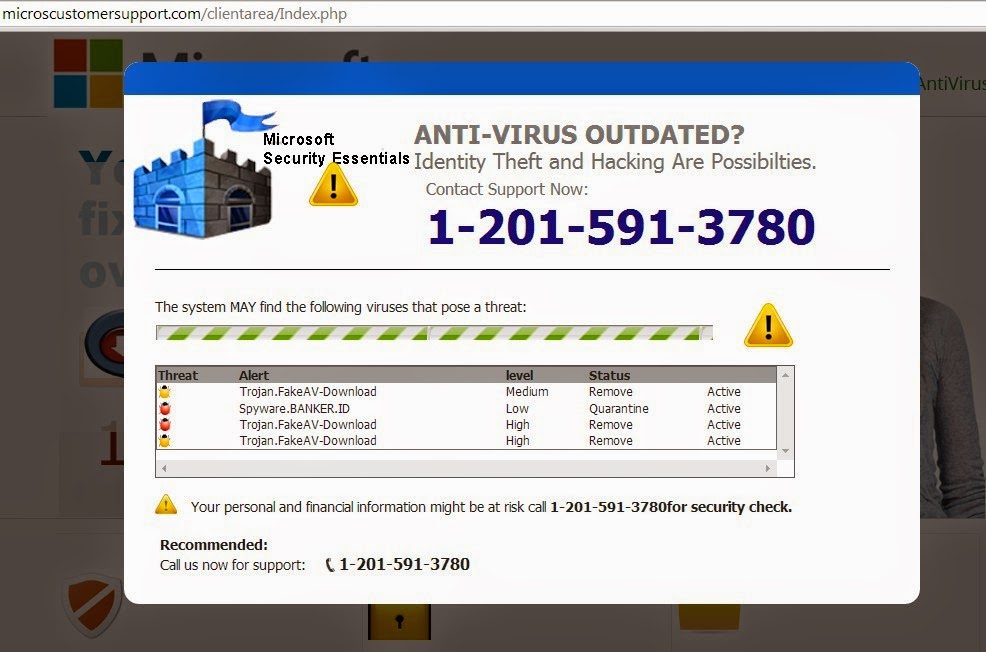
4. It will pop up a fake security alert saying your computer may have adware/ spyware virus and questioning if your anti-virus updated and you’d better call 1-201-591-3780 for security check to prevent your personal and financial information from being stolen. If you trust what it says and call the given number, you will be suggested to buy their remote service. While being controlled, the cyber criminals who pretend to be computer technicians can easily steal your important and sensitive date stored in your computer.
Date can be stolen:
1. Your credit card details and banking information
2. Your e-mail passwords and other account passwords
3. Your Facebook, Skype, AIM, ICQ and other chat logs
4. Your private photos, family photos and other sensitive files
5. Your webcam could be accessed remotely by stalkers with a VPN virus
Instructions for Removing “YOUR COMPUTER MAY HAVE ADWARE/ SPYWARE VIRUS” Pop-up
Solution A: Remove “YOUR COMPUTER MAY HAVE ADWARE/ SPYWARE VIRUS” Manually
Step 1. Stop “YOUR COMPUTER MAY HAVE ADWARE/ SPYWARE VIRUS” associated running process in Windows Task Manager.
Press CTRL+ALT+DEL to open Windows Task Manager > find its running process > End Process.

Click Start > Control Panel > Uninstall a program. Find its associated program and uninstall it.
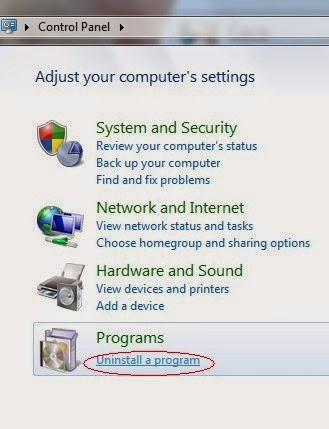
Internet Explorer:
Open Internet Explorer, click the Gear icon or Tools > Internet options. Here, go to the Advanced tab and click the Reset button. Go to the Reset Internet Explorer settings > Delete personal settings and click on Reset option. Finally, click Close and OK to save the changes.
Mozilla Firefox:
Open Mozilla Firefox, go to the Help section > Troubleshooting Information. Here, select Reset Firefox and click Finish.
Google Chrome:
Click the Chrome menu button, select Tools > Extensions, find unknown extension and remove them by clicking Recycle bin. Now click Settings > Show Advanced settings > Reset browser settings and click Reset.
Step 4. Restart your computer to take effect.
Solution B: Remove “YOUR COMPUTER MAY HAVE ADWARE/ SPYWARE VIRUS” Automatically

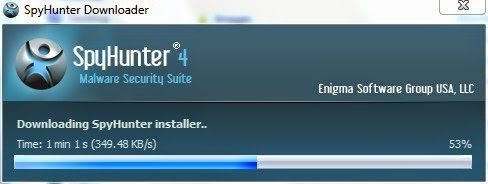
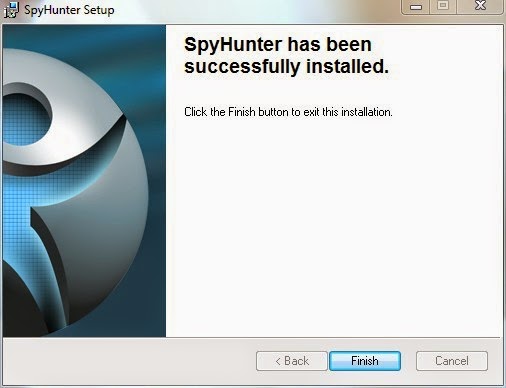
1) Open SpyHunter and click Scan Computer Now! to start scan your computer.
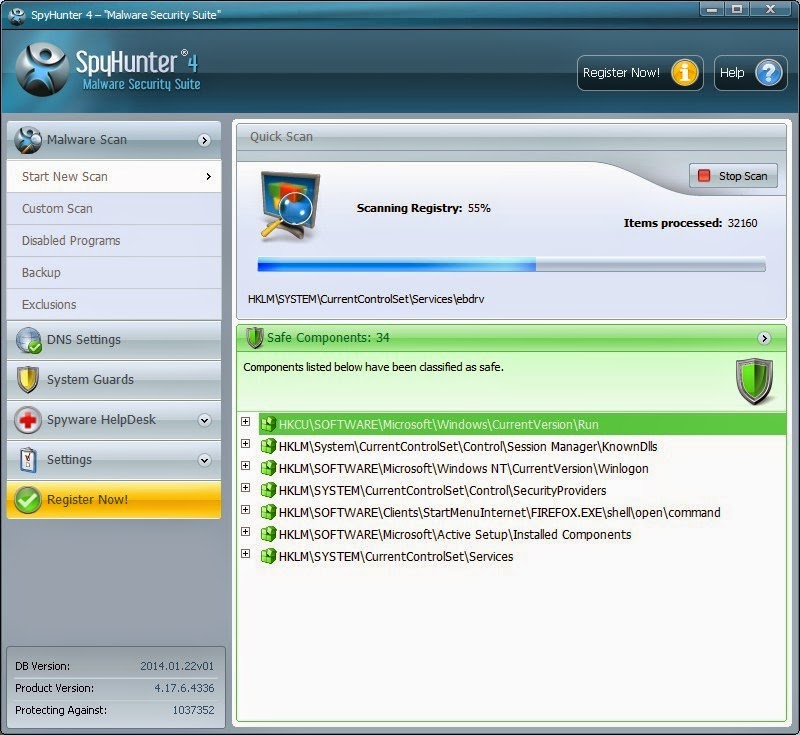
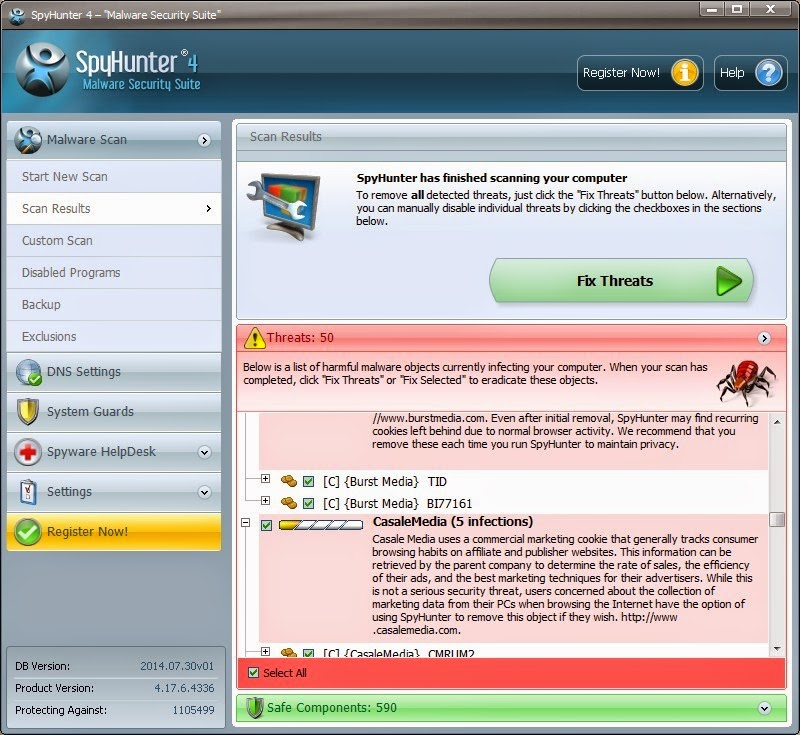
Friendly Reminded:
Using reliable anti-malicious software is the most efficient way for the victims who have a little knowledge about computer or are afraid of using manual removals to remove “YOUR COMPUTER MAY HAVE ADWARE/ SPYWARE VIRUS”. SpyHunter can help you remove it automatically. Therefore, just run a scan of SpyHunter and it will help you to solve all the problems efficiently and permanently.
Step 3. Clean Out the Trash
If you want to clean out the trash produced by “YOUR COMPUTER MAY HAVE ADWARE/ SPYWARE VIRUS” or uninstalling programs, manage your startup items and optimize your computer performance, it is recommended to apply RegCure Pro to help you. Here shows how it works.
1) Freely download RegCure Pro here, or click the below button to download the file.
2) Double click on its application and click the Yes button to install the program step by step.
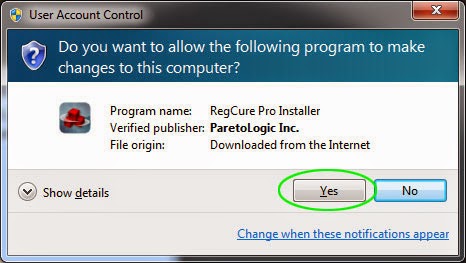
3) After the installation is complete, open the program and scan your system for unnecessary files and invalid registry entries. That will take some time for the first scanning. Please wait while the program scans your system for performance problems.

4) When the System Scan is done, click Fix All button to correct all the security risks and potential causes of your computer slow performance.
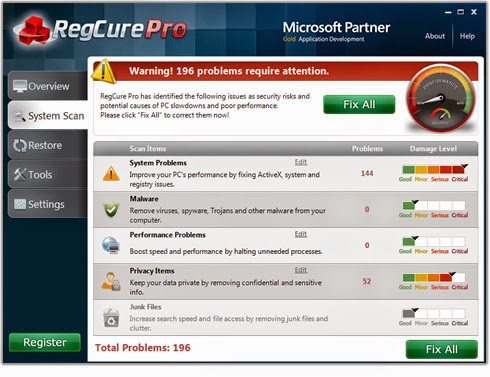
Unless you know what you are doing, do not modify anything in the Registry Editor other than what is instructed here. Want to speed up computer as seen on TV? Just download and install RegCure Pro here, and it will do its best to help you speed up your computer performance.


No comments:
Post a Comment